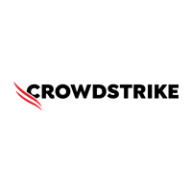

GitHub and CrowdStrike Falcon Cloud Security are both influential in their respective categories of code management and cybersecurity. GitHub stands out for its collaboration, version control, and ease of use, while CrowdStrike leads with robust threat detection capabilities due to its machine learning and AI-driven approach.
Features: GitHub excels with its community support for open-source projects, advanced source code management using Git Hooks and SSH keys, and its ease of collaboration through version control. CrowdStrike distinguishes itself with AI-driven threat detection, a lightweight sensor that minimizes system impact, and a centralized console for efficient threat management and real-time response.
Room for Improvement: GitHub could benefit from enhanced integration with communication tools like Slack, improved handling of large files, and expanded project management features. CrowdStrike users suggest making the installation process easier, improving support portal navigation, and offering more cost-effective pricing solutions.
Ease of Deployment and Customer Service: GitHub is known for its user-friendly interface that requires minimal technical support thanks to its strong community. It is often used in public cloud environments. CrowdStrike, also deployed in public cloud settings, is appreciated for responsive customer service that directly addresses technical issues. Both platforms are praised for their deployment ease, though GitHub leans more on community help, while CrowdStrike emphasizes direct customer support.
Pricing and ROI: GitHub provides free access to basic features, with additional licensing required for private repositories, offering a good ROI through efficient source code management. CrowdStrike has a higher price point justified by its advanced security features, providing strong threat detection and resource optimization, which many users find worth the investment despite the cost. GitHub is favored for its flexible pricing, and CrowdStrike is expected to deliver high security for the premium paid.
More than 12 million vulnerabilities have been identified and resolved while working with CrowdStrike Falcon Cloud Security over the past 10 years.
We have seen a return on investment through time saved and managed employee workload.
It is an expense we are willing to pay to conform to Cyber Essentials Plus and demonstrate responsibility in protecting our data and that of our partners.
Based on my experience with CrowdStrike Falcon Cloud Security's technical support, I would rate them a solid 10 out of 10.
Technical support is quite good.
I have contacted customer service, and they are fast.
The technical support from GitHub is generally good, and they communicate effectively.
Some forums help you get answers faster since you just type in your concern and see resolutions from other engineers.
I have not used GitHub's technical support extensively because there are many resources and a robust knowledge base available due to the large user community.
It is deployed across multiple departments and multiple locations.
CrowdStrike Falcon Cloud Security is indeed highly scalable, ideally for enterprises with a minimum of 2,000 servers to ensure cost efficiency and easier setup.
The scalability of CrowdStrike Falcon Cloud Security is good, and it can easily scale up to over 20,000 or 30,000 endpoints.
We have never had a problem with scalability, so I would rate it at least eight to nine.
GitHub is more scalable than on-prem solutions, allowing for cloud-based scaling which is beneficial for processing large workloads efficiently.
Occasionally, when the workload increases, it slows down considerably and sometimes becomes unresponsive.
When evaluating the stability of CrowdStrike Falcon Cloud Security, their partnerships with all major cloud service providers ensure their servers are optimally positioned.
If a skilled developer uses it, it is ten out of ten for stability.
It provides a reliable environment for code management.
GitHub is mostly stable, but there can be occasional hiccups.
If CrowdStrike Falcon Cloud Security could implement pushing out remediation from the sensor installed on machines, that would be beneficial.
The user interface needs improvement as it's sometimes difficult to locate specific dashboards or reports.
Another issue is the lack of proper documentation.
When working with the CI/CD pipeline and somebody is writing the workflow file, it would be best to include the AI feature so if they write incorrect code, it will notify me about it in the same dashboard, eliminating the need to use third-party tools to review the file.
I am providing this feedback for Copilot because it seems more widespread and more companies allow it rather than Amp, and it would be beneficial if they catch up with Amp on this capability.
Security could make GitHub better. OWASP Top Ten security advisors could be integrated on GitHub, and it could provide checks and advice.
The pricing for CrowdStrike Falcon Cloud Security is reasonable, especially for small companies with limited budgets.
No additional cost for maintenance or support; it's all included in the quotation.
However, the main point is that even though it is expensive, it provides a huge capability to the organization.
Normally, GitHub is not expensive, but it would be welcome if it reduces costs for developing countries.
The pricing of GitHub is reasonable, with the cost being around seven dollars per user per month for private repositories.
The pricing of GitHub depends on the choice of solutions, such as building one's own GitHub Runners to save money or using GitHub's Runners with extra costs.
It automatically blocks duplication and activities that could result in data loss, effectively preventing unintended copying of data to personal devices.
The threat detection capability of CrowdStrike Falcon Cloud Security has always been the major seller, and it works effectively.
CrowdStrike Falcon plays a crucial role in our environment and gives us a clear point where we can focus our efforts rather than hunting down what is happening.
The pull request facility for code review.
GitHub Actions allow for creating multiple jobs that run in different stages such as build, test, and deploy, which enable better visibility and control over the deployment pipeline.
For branching, it works well, especially in an agile environment.
| Product | Market Share (%) |
|---|---|
| GitHub | 1.1% |
| CrowdStrike Falcon Cloud Security | 1.0% |
| Other | 97.9% |


| Company Size | Count |
|---|---|
| Small Business | 13 |
| Midsize Enterprise | 6 |
| Large Enterprise | 14 |
| Company Size | Count |
|---|---|
| Small Business | 42 |
| Midsize Enterprise | 13 |
| Large Enterprise | 49 |
CrowdStrike Falcon Cloud Security is a platform of cloud security solutions aimed at protecting organizations from breaches while simplifying cloud security management. The unified platform combines several cloud security functionalities for comprehensive protection. Built on the CrowdStrike Falcon Platform, it leverages the powerful agent and technology used in CrowdStrike's renowned endpoint protection solutions, extending its capabilities seamlessly to cloud environments.
CrowdStrike Falcon Cloud Security is designed to be a shield for the cloud infrastructure. One of its key strengths is its ability to monitor cloud workloads for potential breaches and attacks. It doesn't matter if you're running virtual machines, containers, or a combination of both across different cloud providers – Falcon Cloud Security offers visibility and protection. Additionally, it works tirelessly to pinpoint misconfigurations or vulnerabilities in your cloud setup, proactively stopping issues before they become full-blown security incidents. Compliance becomes easier too, as it can check if your deployments meet the requirements of various industry standards and regulations.
If you heavily utilize containers and Kubernetes, Falcon Cloud Security has you covered. It delves deep into container images and running containers to spot weaknesses and potential threats, helping you secure your containerized applications from the moment they're developed to when they're up and running. Finally, it tackles the often messy world of permissions in the cloud. Falcon Cloud Security analyzes identities and their attached permissions, ensuring that the principle of least privilege is followed and sensitive data isn't exposed due to overly broad access rights.
In essence, CrowdStrike Falcon Cloud Security aims to simplify the complexities of cloud security by consolidating tools, providing a centralized view of your risks and threats, and delivering advanced protection that blends seamlessly with your development processes.
Based on the interviews we conducted with CrowdStrike Falcon Cloud Security users, overall, the sentiment is positive. Users praise the solution's efficacy in detecting and preventing threats, its ease of use, scalability, stability, and integration with existing systems. There were also mentions of areas for improvement, such as the pricing, the user interface, and customer support.
GitHub is a web-based Git repository hosting service. It offers all of the distributed revision control and source code management (SCM) functionality of Git as well as adding its own features. Unlike Git, which is strictly a command-line tool, GitHub provides a Web-based graphical interface and desktop as well as mobile integration. It also provides access control and several collaboration features such as bug tracking, feature requests, task management, and wikis for every project.
We monitor all Application Security Tools reviews to prevent fraudulent reviews and keep review quality high. We do not post reviews by company employees or direct competitors. We validate each review for authenticity via cross-reference with LinkedIn, and personal follow-up with the reviewer when necessary.